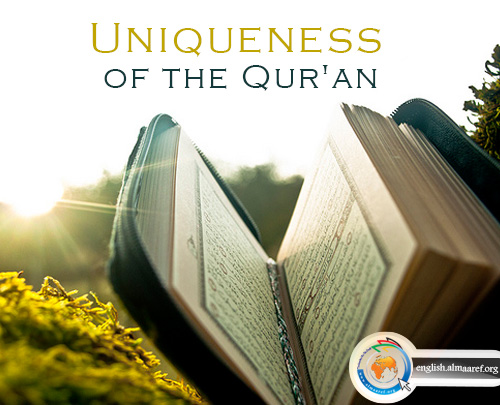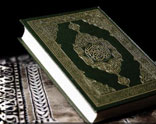The Qur'an makes use of the verb “looking,” and no other word more suitable
could be available for the expression of the desired sense. But to avert the
possibility of any doubt, the Qur'an explains in other place:
﴾Vision perceives Him not, and He perceives all vision. (6:104)﴿
The second verse makes the reader distinguish between two different meanings
conveyed by the same word. In order to avoid any possibility of ambiguity in its
exalted themes, the Qur'an asks us to check the mutashabihat against the
mahkamat:
﴾He sent down upon thee the Book, wherein are verses firm (ayat mahkamat)
that are the essence of the Book. (3:6)﴿
Thereby, the Qur'an means that there are certain verses whose firmness cannot be
denied and other meanings cannot be derived from them, except their real ones.
Such verses are the 'mother' of the Book (umm al-kitab). In the same way as a
mother is the refuge to her child, or a cosmopolitan city (umm al-qura) is the
center of small cities, al-ayat al-muhkamat are also regarded as the axes of the
mutashabihat.
Al-ayat al-mutashabihat are, of course, to be cogitated upon and understood, but
they are to be pondered upon with the help of al-ayat al-muhkamat. Any inference
drawn without the help of the mother-verses would not be correct and reliable.
* Book: Understanding the Uniqueness of the Quran. By Martyr Murtada Mutahhari



















